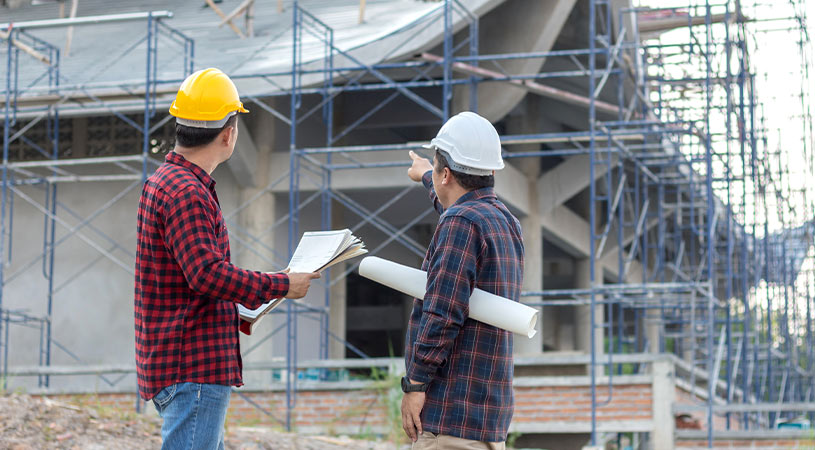Most individuals don’t think that disagreements happen more often than they do on construction sites. A building dispute may easily throw off schedules, raise prices, and put a strain on relationships, whether you’re a homeowner, builder, or contractor. Before going to court, it’s a good idea to know what you can do to settle the issue more quickly and often for less money.
Table of Contents
1. Identify the Real Issue Early
The first step is to be clear. A lot of building problems start because people don’t comprehend the scope, quality, or payment. Take the time to look over your contract, bills, and any other messages you got about the project.
Ask yourself:
- Was the task done as agreed upon?
- Did you get written permission for the changes?
- Are there clear records of payments and due dates?
A meticulous paper trail can make a big difference later, particularly if you have to go to court.
2. Communicate Openly
Often, talking directly to someone can stop a disagreement from getting worse. Talk to the other person in a calm and professional way. Be clear about your worries and pay attention to what they have to say.
There are occasions when disagreements happen because of simple miscommunication. A chat might show that a late payment was because the bank was slow or that a building flaw was caused by a confusion of the design specs.
Write down everything you say. Keep written records of conversations, meetings, and agreements. These notes can be used as proof if things go further.
3. Review the Contract Terms
There should be a contract for every building project that spells out what each side is responsible for. Read your contract carefully before getting attorneys involved.
Look for:
- Clauses for resolving disputes
- How long do you have to reply to allegations?
- Steps to take if there are changes or delays
- Ending rights
If you understand these clauses, you’ll be able to choose what to do next. A lot of the time, contracts say you have to try to negotiate or mediate before going to court.
4. Gather and Organize Evidence
Start accumulating proof if talking doesn’t help. This includes:
- Signed copies of the contract
- Emails and text messages
- Pictures of the construction work or problems that were said to have happened
- Expert reports, if they are available
- Payment records or bills
Having well-organized paperwork makes your case more credible. It also makes it easier for your lawyer or conflict resolution expert to grasp your situation.
5. Seek Legal Advice Early
It’s a good idea to talk to a lawyer early on in the process. Firms like BSM Law often tell their clients to look into all of their choices before going to court. A lawyer can explain your rights under Australian construction law, assist you in understanding your contract, and tell you what to do next.
At this point, getting legal guidance doesn’t mean you’re getting ready for court. It’s about knowing where you are and what could happen.
6. Try Alternative Dispute Resolution (ADR)
Think about Alternative Dispute Resolution before you start formal legal action. Negotiation, mediation, and arbitration are all ways to use ADR.
- Negotiation lets both sides come to a voluntary agreement.
- A neutral third party helps with the discussion in mediation.
- An independent arbitrator makes a ruling in arbitration that is binding.
These methods are generally quicker, cheaper, and more flexible than going to court. Many construction contracts involve ADR before you can even think about going to court.
7. Understand When to Go to Court
If nothing else works, you may have to go to court. This should be the last thing you do, since court cases can take a long time and cost a lot of money.
If you’ve tried everything else and the other party won’t work with you or live up to their end of the deal, going to court may be the only way to defend your rights.
A legal team that knows how to handle building and construction issues, like the ones at BSM Law, can help you through the court procedure. They can get your case ready, file papers, and speak for you in court.
8. Stay Professional Throughout the Process
Being professional pays off, even when feelings are strong. Don’t threaten, complain in public, or stop paying without talking to a lawyer first. If the matter goes to court, these kinds of acts could hurt your case.
Be nice, honest, and write down everything you say. Don’t make assumptions and be open. A calm and cooperative approach usually gets better results.
Final Thoughts
It’s frustrating to have a building dispute, but you can get back in control by adopting calm, planned steps. Talk to each other openly, read your contract, and gather your proof. Before going to court, try negotiation and mediation first.
When you get legal assistance from a well-known firm like BSM Law, you can be confident that you know what your rights and alternatives are at every step. If you know what to do, you can settle a lot of building issues long before they ever go to court.

